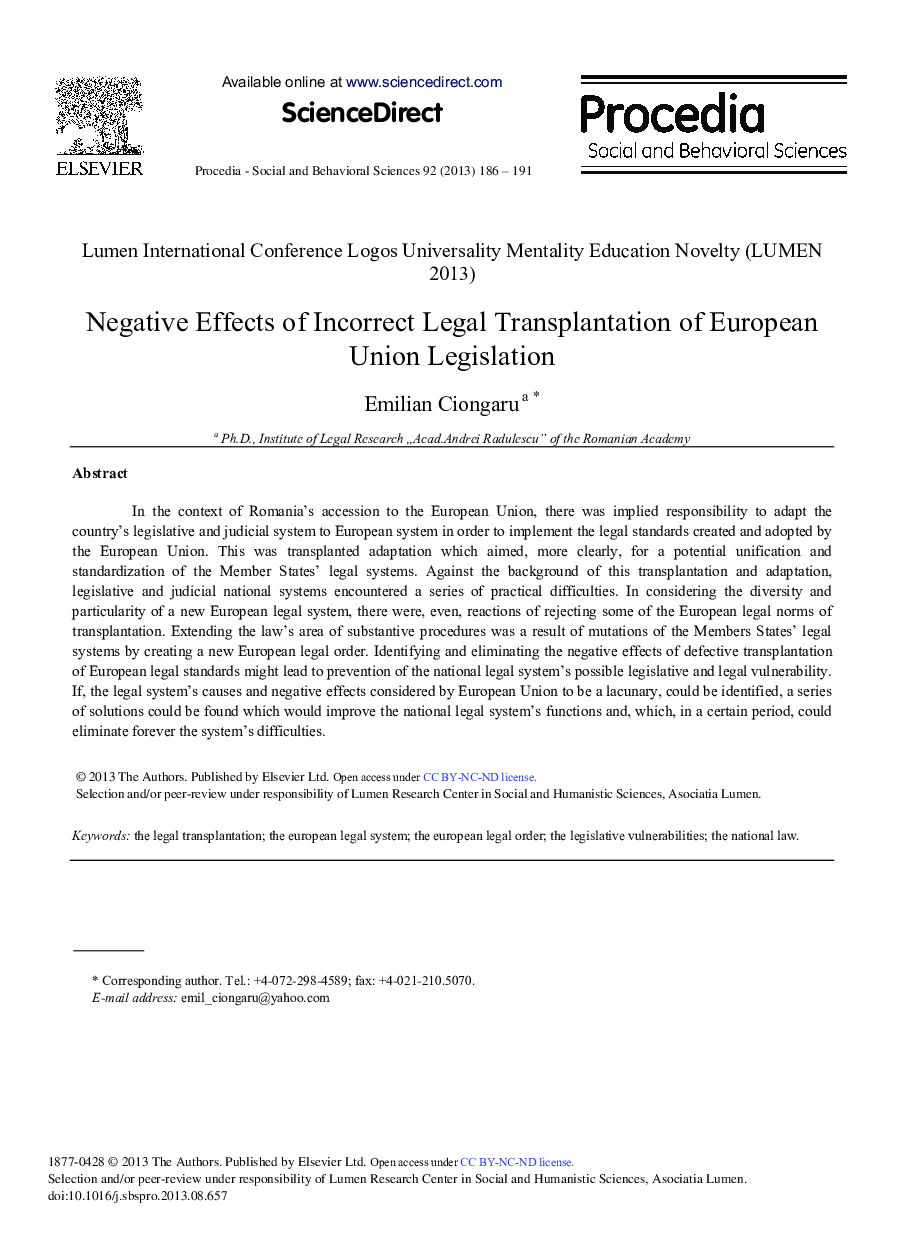| Article ID | Journal | Published Year | Pages | File Type |
|---|---|---|---|---|
| 1117913 | Procedia - Social and Behavioral Sciences | 2013 | 6 Pages |
In the context of Romania's accession to the European Union, there was implied responsibility to adapt the country's legislative and judicial system to European system in order to implement the legal standards created and adopted by the European Union. This was transplanted adaptation which aimed, more clearly, for a potential unification and standardization of the Member States’ legal systems. Against the background of this transplantation and adaptation, legislative and judicial national systems encountered a series of practical difficulties. In considering the diversity and particularity of a new European legal system, there were, even, reactions of rejecting some of the European legal norms of transplantation. Extending the law's area of substantive procedures was a result of mutations of the Members States’ legal systems by creating a new European legal order. Identifying and eliminating the negative effects of defective transplantation of European legal standards might lead to prevention of the national legal system's possible legislative and legal vulnerability. If, the legal system's causes and negative effects considered by European Union to be a lacunary, could be identified, a series of solutions could be found which would improve the national legal system's functions and, which, in a certain period, could eliminate forever the system's difficulties.
